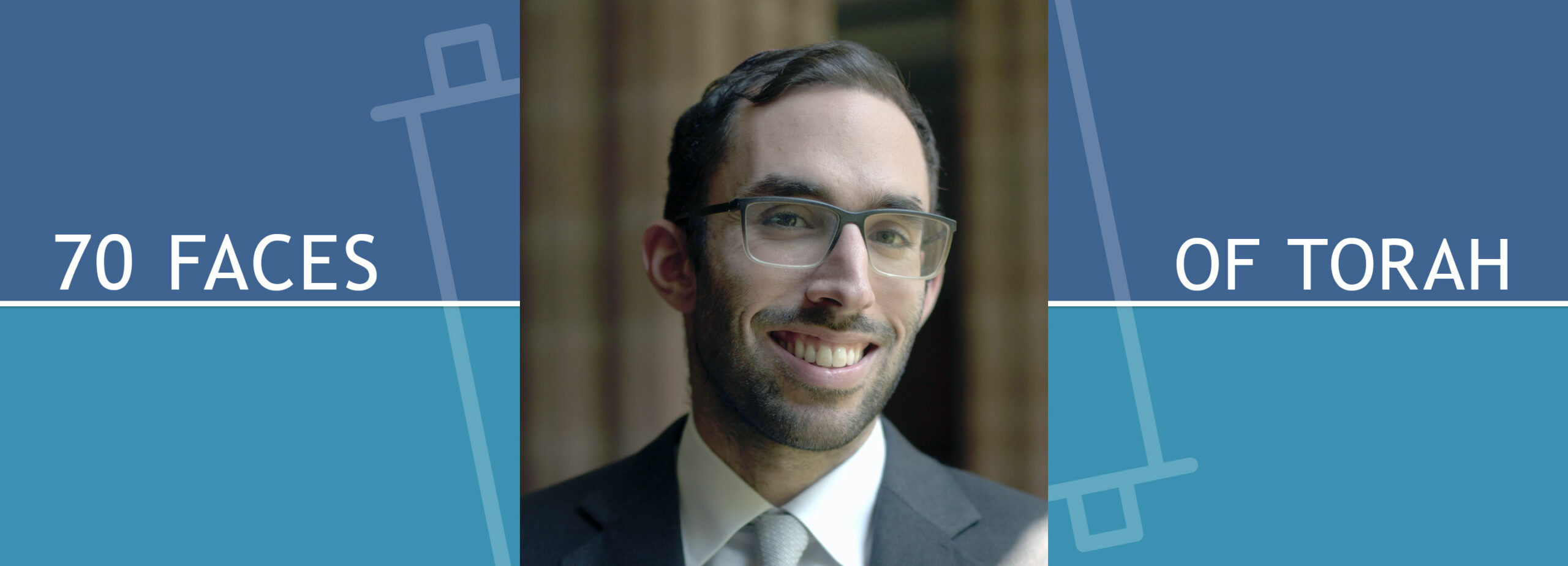Jewish learning Daring to Dream

Parashat Vayetze (Genesis 28:10-32:3)
At the beginning of Parashat Vayetze, Jacob dreams a now-famous scene:
He had a dream; a stairway was set on the ground and its top reached to the sky, and angels of God were going up and down on it.
And standing beside him was the Lord, who said, “I am the Lord, the God of your father Abraham and the God of Isaac: the ground on which you are lying I will assign to you and to your offspring (Genesis 28:12-13).
You can’t do any better than the image of a stairway to heaven—a fantastical ladder peaking at the sky with angels majestically ascending and descending. It is magical but—or perhaps and—it is a dream.
When Jacob awakens from this vision, he is jolted back to reality, but the dream state remains:
Jacob awoke from his sleep and said, “Surely the Lord is present in this place, and I did not know it!”
Shaken, he said, “How awesome is this place! This is none other than the abode of God, and that is the gateway to heaven” (Genesis 28:16-17).
In Jacob’s worldview, there is virtually no line or distinction between dreams and reality. When he wakes from his sleep, his dreamstate informs his existence back in the here and now. His eyes are suddenly opened to divinity and godliness precisely through the experience of closing his eyes, of drifting from this world for a night’s sleep.
Professor of Religion Dr. Naomi R. Goldenberg views dreams as “one of the most immediate approaches to the world of inner experience.” She writes that “sometimes the strongest and most original of all man’s spiritual activities—the religious activity—is also discovered from our dreams.” The ability to dream is the ability to peer into our souls.
The Tanakh is full of dreams becoming reality, but this moment in Parashat Vayetze holds a special place in the collective imagination of our Sages. Jacob is not only a dreamer, he is a davener, a person in prayer.
The Talmud teaches that Abraham, Isaac, and Jacob each instituted a time of day for prayer. Abraham “rose early in the morning to the place where he had stood” (Genesis 19:27). Isaac “went out to converse in the field toward evening” (Genesis 24:63), and Jacob “encountered the place and he slept there” (Genesis 28:11).
Each time of day brings with it a word that the rabbis take to broadly mean “pray.” Abraham stood, Isaac conversed, and Jacob encountered. When we pray in the evening, we can harken back to the actions of Jacob in this moment of encounter. To encounter is to meet by chance, to happen upon, to fall into, to dream. Jacob’s time for prayer is the only episode within which a dream directly follows. What might this tell us about making dreams reality, or making prayer more than potential?
In the case of Jacob, our dreamer and pray-er, the dream only becomes reality insofar as he responds to it, calls upon it as truth, and initiates a new reality from it. To Jacob, a dream is not simply a dream, it is an opportunity. It is a glimpse into another layer of life, a glimpse that he carries with him, tries out, and integrates into his very existence.
Perhaps the same can be said of prayer. In a world that calls to us for big, structural change, prayer can feel a bit reductive—a way to check a box or voice larger-than-life hopes. Jacob teaches us that some prayer may only be as good as our response to prayer. We won’t always come out of a place of prayer with an ability to say, “How awesome is this place!”—but intending to see the world anew might allow us to do just that.
Please contact the author if you’d like to share any feedback.
Rabbi Max Edwards graduated from the Rabbinical School of Hebrew College in 2021. He is currently the Assistant Rabbi at Temple B’nai Abraham in Livingston, New Jersey.

